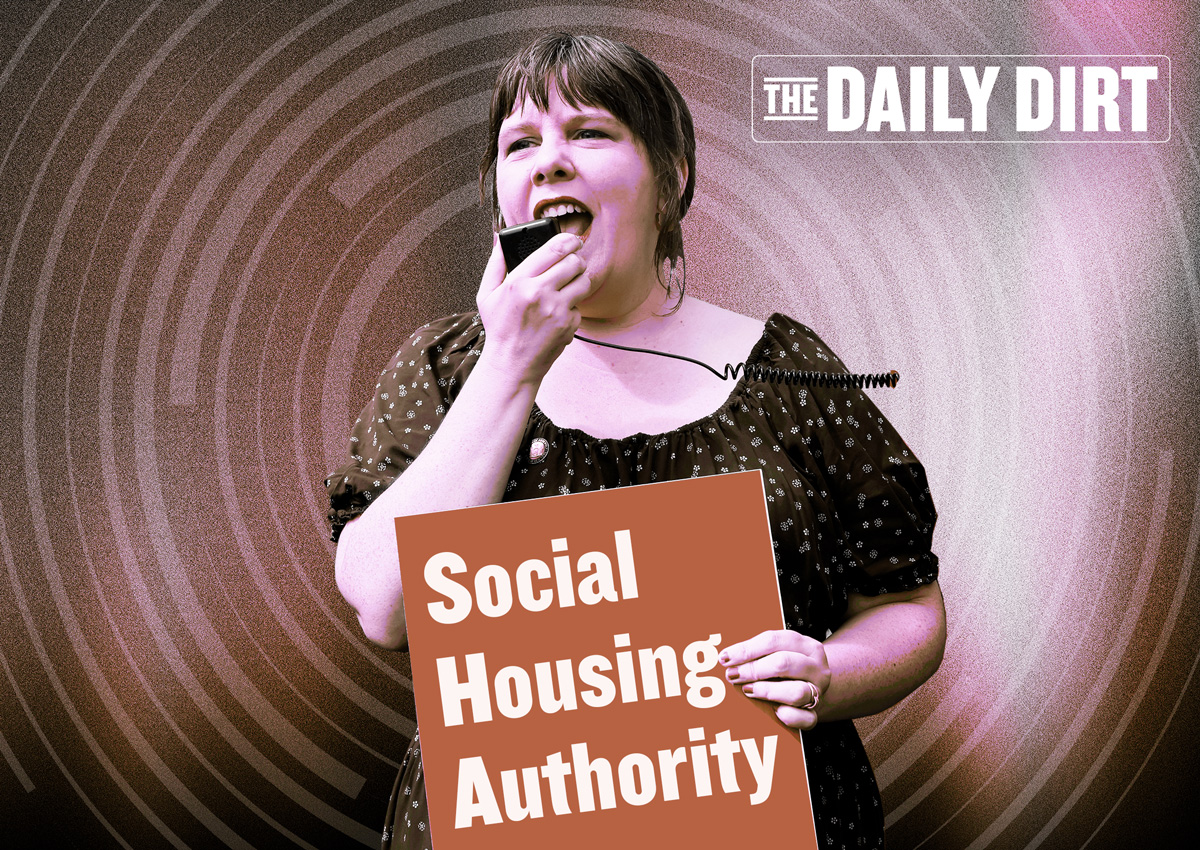T
he Democratic Socialists of America (DSA) has shifted its focus towards social housing due to the passing of the Good Cause Eviction law in New York City. This law protects tenants from arbitrary rent increases and evictions without a valid reason. In response, the New York City chapter of the DSA launched a new campaign called "House the Future," which aims to address the issue of affordable housing in the city.
The campaign is centered around a bill introduced this year by Assembly member Emily Gallagher and Sen. Cordell Cleare, known as the Social Housing Authority bill. This bill proposes the creation of a public benefit corporation tasked with renovating buildings or acquiring land for the construction of permanently affordable housing units.
Under this bill, no more than one-third of units in the Social Housing Authority's portfolio can be occupied by households earning more than 100% of the area median income (AMI). At least 25% of units must be reserved for households earning 130% of AMI or less. The overall AMI would be limited to 165%. Annual rent increases for affordable units would be capped at 2%.
However, financing such housing presents a significant challenge for the campaign. Changing public perception about public housing is also a daunting task, as many people associate public housing with decades of disinvestment and mismanagement within the New York City Housing Authority.
The campaign's organizers believe that housing should be considered a public good and that the state should have a say in how it's built and managed. The state would need to allocate substantial funds to the Social Housing Authority, as the initial ask this year was $5 billion.
While the Social Housing Authority would not completely eliminate the private market, private investors would still play a role in financing projects through the issuance of bonds. The construction work would be contracted out to experienced builders, designers, and developers.
Real estate professionals have expressed opposition to the bill and similar initiatives, arguing that the state should not be the sole developer at scale. They argue that socialists cannot spend all day attacking how the state runs things and then expect to be taken seriously when they say the state is the only one that can solve our problems.
Despite opposition, state Democrats have shown support for social housing models in this year's state budget process. They included the New York Housing for the Future Homeownership Program in the budget, setting aside $75 million for the program. This program aims to create limited equity co-ops on land controlled by the state, a municipality, a nonprofit, or a community land trust.
Supporters of the Social Housing Authority bill have also gained support from some city construction unions. It's too early to say if this bill will gain traction in the next legislative session, but supporters are getting an early start. Social housing may also play a role in next year's mayoral race.
Comptroller Brad Lander, who is running against Adams, has expressed his hope to promote affordable homeownership models, including limited equity co-ops.
In other news, "Lifeline," a musical about penicillin, debuted off-Broadway this week. The show features a chorus of actual city health care workers.
In Brooklyn, an explosion in a basement injured at least four people. The blast was likely caused by a gas leak, according to CBS News. The Department of Buildings issued a vacate order for three addresses on the block and a violation for a basement apartment.
The state Department of Financial Services approved increases to health insurance premiums that will raise rates by an average of 12.7% for individual plans and 8.4% for small group policies, according to the Times Union.
In residential real estate news, the priciest residential sale of the day was $4.2 million for a 3,622-square-foot townhouse at 66 Reade Street in Tribeca. Leonard Steinberg of Compass had the listing.
In commercial real estate news, the largest commercial sale of the day was $65 million for a development site at 91 Pacific Street in Cobble Hill. The Real Deal last month reported the sale between Madison Realty Capital and Rockrose Development.
Finally, the highest price for a residential property hitting the market was $4.3 million for a 1,512-square-foot condominium at 80 East 10th Street in the East Village. Pierre Fraiture of Level Group has the listing.














